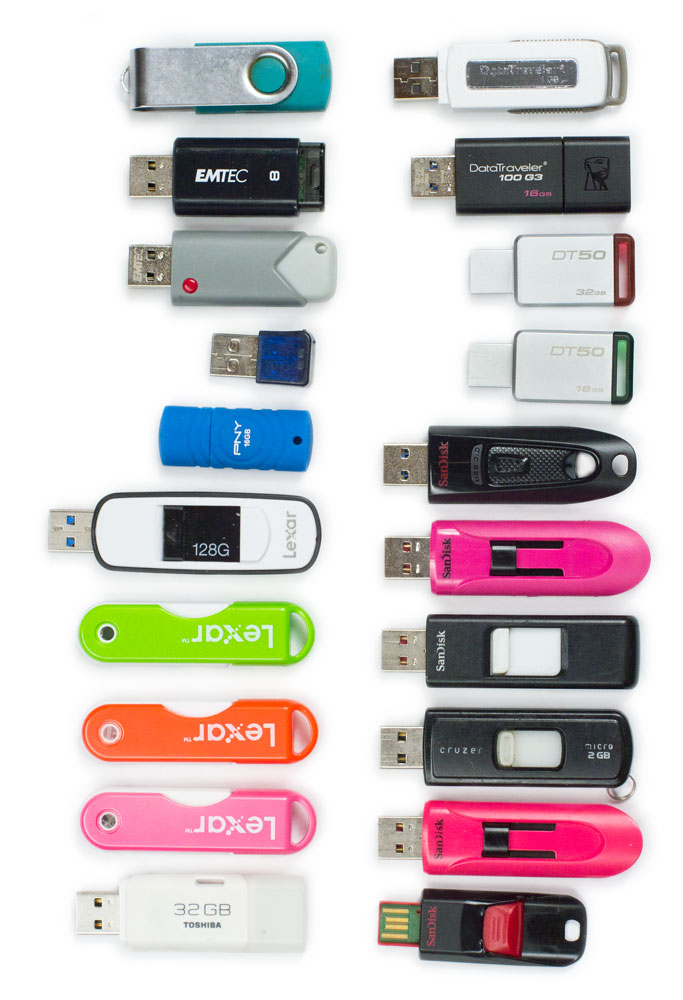 Data recovery customers ask me all the time: “What’s the best flash drive to get? What is the most reliable thumb drive?” They’re looking for the one perfect USB drive that will never fail, and though not all flash devices are created equal (you can bet that free goody-bag flash drive with someone’s logo printed on it isn’t going to be as reliable as a name brand) regardless of whether the drive lasts 3 months or 5 years, all flash media WILL eventually fail, and if you don’t back up your data to another device, it’s going to be a problem sooner or later.
Data recovery customers ask me all the time: “What’s the best flash drive to get? What is the most reliable thumb drive?” They’re looking for the one perfect USB drive that will never fail, and though not all flash devices are created equal (you can bet that free goody-bag flash drive with someone’s logo printed on it isn’t going to be as reliable as a name brand) regardless of whether the drive lasts 3 months or 5 years, all flash media WILL eventually fail, and if you don’t back up your data to another device, it’s going to be a problem sooner or later.
Even if you crunch statistics and find the most reliable, longest lasting flash drive there is, your risk is never zero of getting one that under-performs and dies much sooner than expected. Even if we assume there is an immortal flash drive somewhere out there, the most common failure by far is physical damage. The best flash drive won’t be immune to the full weight of a laptop falling on top of it while the drive is plugged into the USB port, or a child bumping into and breaking it. It happens all the time! And even though in many cases, a simple broken connector is perfectly repairable for a full recovery, if you have a monolithic flash drive (e.g. most if not all Samsung USB drives, any extra small keychain-size drive, and some traditional-size drives as well) then that kind of damage is likely to be catastrophic. And beyond that, any flash drive that gets chewed by a pet or run over by a car is likely to be a completely lost cause.
I generally recommend thinking of flash media as a short-term way to transfer data, not long-term storage. The only way to protect your data is to copy it to more than one device. Cloud storage can be a good option since they typically offer software that can help you automatically copy your data to the cloud, but they also shouldn’t be relied on as your sole copy. Large cloud hosting services like Google Drive, OneDrive, Dropbox, iCloud, etc. are typically pretty reliable, but data loss can and has still occurred with them, especially if you let a paid account lapse and lose your storage space.
So what flash drive should you buy? It’s still a good idea to use name brand drives so you can be reasonably confident it will be built with decent components – SanDisk, Lexar, Kingston, PNY, just to name a few – but the real answer is, no matter what you get, have a plan to make another copy.
But sometimes even your best efforts fall through, so we’ll be here to recover your flash drive if you need us!